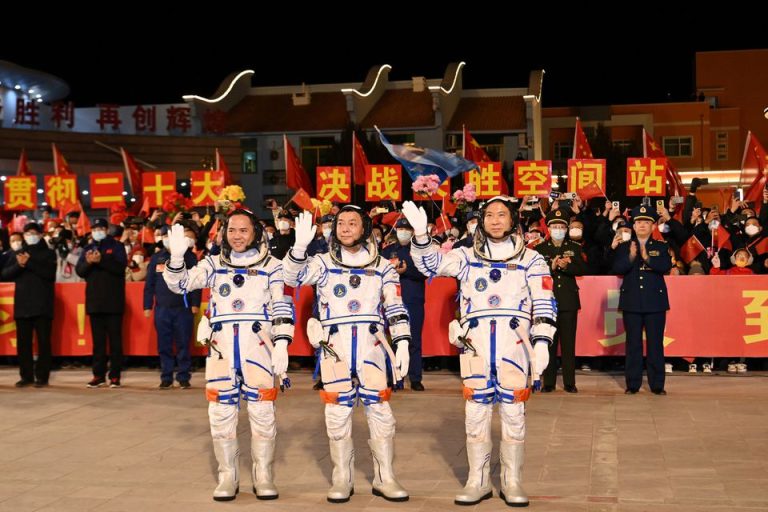
(Reuters) – Three Chinese astronauts arrived on Wednesday at China’s space station for the first in-orbit crew rotation in Chinese space history, launching operation of the second inhabited outpost in low-Earth orbit after the NASA-led International Space Station.
The spacecraft Shenzhou-15, or “Divine Vessel”, and its three passengers lifted off atop a Long March-2F rocket from the Jiuquan Satellite Launch Centre at 11:08 p.m. (1508 GMT) on Tuesday in sub-freezing temperatures in the Gobi Desert in northwest China, according to state television. Shenzhou-15 was the last of 11 missions, including three previous crewed missions, needed to assemble the “Celestial Palace”, as the multi-module station is known in Chinese. The first mission was launched in April 2021.
The spacecraft docked with the station more than six hours after the launch, and the three Shenzhou-15 astronauts were greeted with warm hugs from the previous Shenzhou crew from whom they were taking over.
The Shenzhou-14 crew, who arrived in early June, will return to Earth after a one-week handover that will establish the station’s ability to temporarily sustain six astronauts, another record for China’s space programme.
The Shenzhou-15 mission offered the nation a rare moment to celebrate, at a time of widespread unhappiness over China’s zero-COVID policies, while its economy cools amid uncertainties at home and abroad. “Long live the motherland!” many Chinese netizens wrote on social media.
The “Celestial Palace” was the culmination of nearly two decades of Chinese crewed missions to space. China’s manned space flights began in 2003 when a former fighter pilot, Yang Liwei, was sent into orbit in a small bronze-coloured capsule, the Shenzhou-5, and became China’s first man in space and an instant hero cheered by millions at home. The space station was also an emblem of China’s growing clout and confidence in its space endeavours and a challenger to the United States in the domain, after being isolated from the NASA-led ISS and banned by U.S. law from any collaboration, direct or indirect, with the American space agency.





